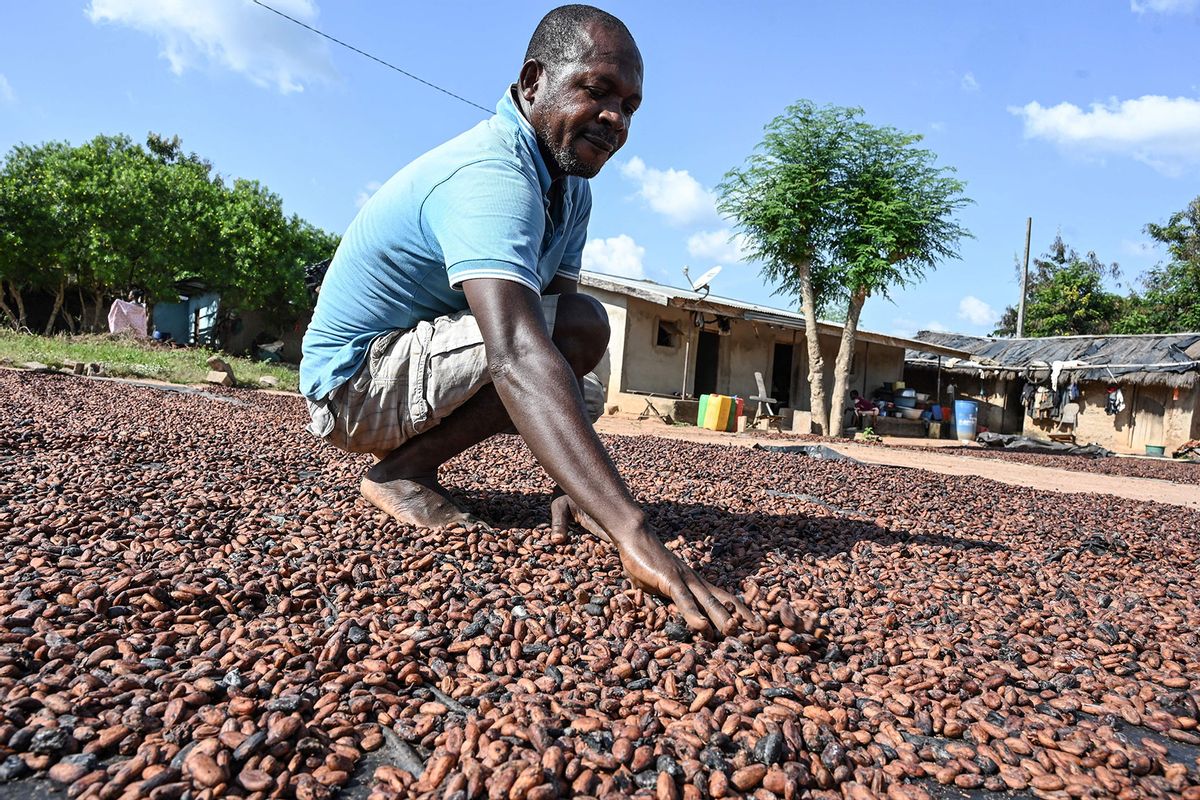When you blend raw cocoa with sugar, it yields one of the most universally desired products on the planet, whether as part of a candy bar at the corner store or a high-end artisanal chocolate at a price point many times higher. But there's a problem: The cocoa beans indispensable to making real chocolate have become increasingly expensive, with the price rising by 136% between July 2022 and February 2024.
This is primarily about the large plantations of cocoa trees in West Africa that provide most of the global supply. As climate change causes increasingly erratic and extreme weather — especially heat waves, shifting rainfall patterns and other climate-related risks — becomes more common, the trees suffer and the harvest becomes unpredictable. The 2023-2024 season is expected to yield 374,000 tons less cocoa than usual, a big drop from the previous season, which was 74,000 tons below normal levels.
While chocolate is a luxury good not essential to survival, it's nonetheless a major global commodity, and the ripple effects of a poor cocoa harvest will be significant. And that's just one example: Climate change is causing prices to rise rapidly for many of the things we buy. According to a recent study in the journal Communications Earth & Environment, the heat extremes caused by global warming will "enhance inflationary pressures" on a wide range of products.
Researchers studied more than 27,000 observations of monthly consumer price indices around the world, and then ran those figures through a fixed-effects regressions model to ascertain how climate change impacts inflation. They found that as temperatures increased, prices for food consistently rose as well with them, and determined that this inflation was persistent for over 12 months in both affluent and low-income countries.
"Our study looks at how the price of food responds to climate anomalies in historical data for over 121 countries between 1996 and 2020," Max Kotz, the corresponding author of the study and a post-doctoral research scientist at the Potsdam Institute for Climate Impact Research, told Salon. "Our main finding is that food prices increase in response to higher temperatures in places and seasons that are already warm. We find very similar responses across wealthy and less-developed countries."
Previous studies have identified links between rising temperatures and inflation using historical data, this study is unique in extrapolating about future inflation by analyzing historical data and applying that analysis to projections of future climate conditions.
"We find very robust evidence that future climate change will amplify inflation across all countries of the world," Kotz said. "Our central estimate is for impacts on food inflation of approximately 1.5 percentage points per year by 2035, on average, across the world." Although nations in the Global South will be disproportionately impacted, residents of higher-latitude countries in North America and Europe will still feel the hurt, especially during the increasingly warm summer months.
Want more health and science stories in your inbox? Subscribe to Salon's weekly newsletter Lab Notes.
"We look at how exceptionally hot summers such as that in Europe in 2022 impacted inflation, finding that food inflation was 0.67 percentage points higher and that this could be amplified by 30-50% due to future climate change by 2035," Kotz said.
This is not the only recent study to link climate change and inflation. The Reserve Bank of India cautioned Monday that ongoing climate change could cause frequent inflationary shocks of inflation that might lead the Indian government to tighten monetary policy. Both rising average temperatures and more frequent extreme weather, the bank reported, have ripple effects on the economy throughout the country.
"Frequent and overlapping adverse climate shocks pose key upside risks to the outlook on international and domestic food prices," RBI governor Shaktikanta Das said in a policy statement accompanying the report.
"We see clear evidence that unmitigated climate change would cause even larger inflation impacts later in the century, and that reducing greenhouse gas emissions to keep within the Paris Climate Agreement would substantially reduce these impacts."
University of North Texas economist Alla Semenova published a paper in the journal Globalizations which found similar evidence that inflation will worsen as climate change-caused events — particularly heat waves, wildfires and severe storms — become more common. Semenova also argued that Green New Deal-type policies that attempt to mitigate the effects of climate change will not reduce this inflation, and that only "degrowth" (a term for sustainable economic policies not focused on increasing GDP) can prevent this from happening.
"Growth-based Green New Deal and related fiscal policies will be ineffective at mitigating climate change and reducing its inflationary impacts," Semenova writes. "Unless degrowth solutions are sought, climate change and its price effects will only intensify over time."
Kotz echoed Semenova's observations about the role of climate change in causing future inflation.
"We see clear evidence that unmitigated climate change would cause even larger inflation impacts later in the century, and by contrast that reducing greenhouse gas emissions to keep within the Paris Climate Agreement would substantially reduce these impacts," Kotz said. "We also show that adaptation could theoretically reduce impacts, but we do not see any evidence that this has occurred historically. "
One way to interpret these reports is that until governments and bankers can craft monetary policies that address or correct the inflationary impact of climate change, prices will continue to rise on numerous categories of goods, including chocolate. This disruption in the supply chain of the world's favorite sweet demonstrates “the importance for all consumers around the world that climate change is tackled, and that climate targets and climate change mitigation measures like nationally determined contributions are met,” said Rodrigo Carcamo, senior economist at the U.N. Conference on Trade and Development, in a press statement.



Shares